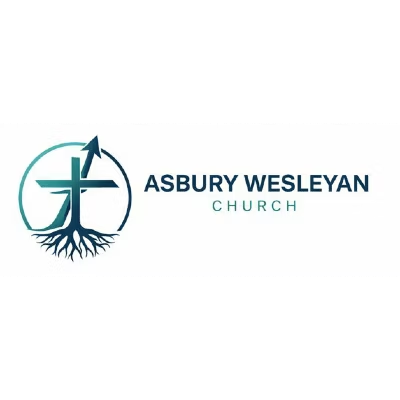

Jesus is calling you!
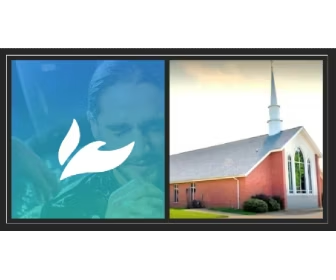

Official statements of the Wesleyan Church in relation to cultural and public policy matters.
Read More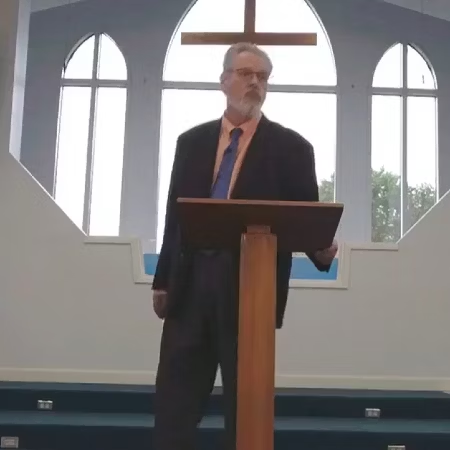

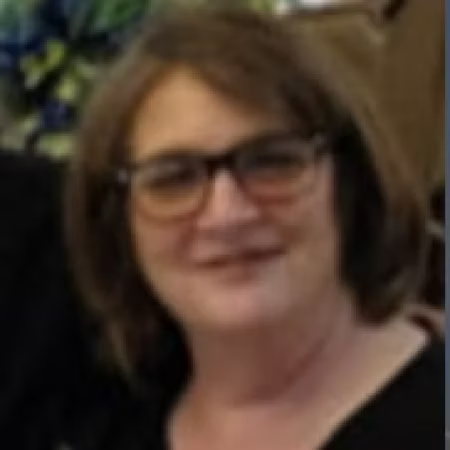

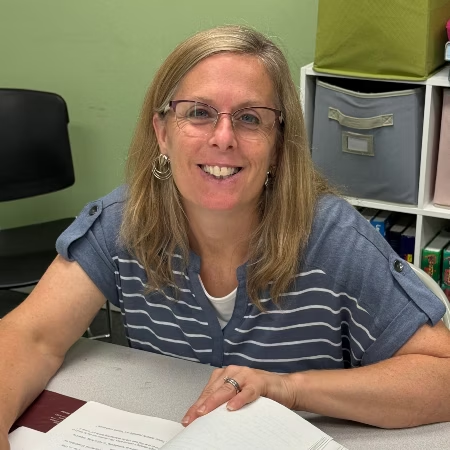
Peninsula Pastoral Counseling Center (PPCC)
Located at 707 Gum Rock Court, Newport News, VA 23606, PPCC is a nonprofit organization offering evidence-based counseling in a faith context. They provide services for individuals, couples, and families, addressing issues such as trauma, anxiety, grief, and spiritual concerns. The center integrates mind, body, spirit, and community into its healing approach and does not turn anyone away based on ability to pay. Peninsula Pastoral Counseling Center+2Solihten+2Psychology Today+2Peninsula Pastoral Counseling Center
________________________________________
Thriveworks Newport News
Situated at 1030 Loftis Blvd, Suite 102, Newport News, VA 23606, Thriveworks offers Christian-based counseling both in-person and online. They accept most major insurance plans and provide services for individuals, couples, families, and teens. Their counselors incorporate Christian values into therapy to support clients' mental health and spiritual well-being. Thriveworks
________________________________________
Tidewater Pastoral Counseling Services (TPCS)
Based in Norfolk, VA, TPCS is a nonprofit extension of the Judeo-Christian faith community dedicated to providing quality pastoral counseling and education. They serve over 1,500 clients annually across nine church-based centers throughout Hampton Roads. Their staff includes ordained clergy representing various denominations, many of whom are licensed mental health professionals. Tidewater Pastoral Counseling Services
________________________________________
Mental Health Match
Mental Health Match is an online platform that helps individuals find Christian counselors in Newport News, VA. They feature a variety of therapists, including those trained in Cognitive Behavioral Therapy (CBT), EMDR, and trauma-focused therapy. You can browse profiles and connect with therapists who align with your faith and therapeutic needs.
Virginia Peninsula Foodbank Food Hub
3509 Chestnut Avenue, Newport News, VA 23607
Phone: 757-271-4682
Hours:
Tuesday: 1:00 PM – 4:30 PM
Wednesday: 9:00 AM – 1:30 PM
Thursday: 1:00 PM – 5:30 PM
Friday & Saturday: 9:00 AM – 11:30 AM
Appointments are recommended and can be scheduled online. Virginia Peninsula Foodbank
First Church of Newport News
2300 Wickham Avenue, Newport News, VA 23607
Phone: 757-247-3033
Meal Service:
Thursdays from 12:00 PM – 1:30 PM
Offers a weekly community meal. Newport News+4Newport News+4Virginia Peninsula Foodbank+4All Nations Church+1Newport News+1
St. Vincent de Paul Catholic Church
230 33rd Street, Newport News, VA 23607
Phone: 757-245-4234
Meal Service:
Monday – Friday from 11:00 AM – 11:45 AM
Provides daily meals for those in need. Newport News
New Beginnings Church of Christ Food Pantry
Address: 757-420-7712
Food Distribution:
4th Saturday of each month from 10:00 AM – 11:30 AM
Offers emergency food assistance. Virginia Peninsula Foodbank+11New Beginnings Church+11Food Pantries+11
1. Avalon Center for Women and Children (Williamsburg, VA)
* Address: P.O. Box 1079, Williamsburg, VA 23187
* Phone: 757-258-5051 (24-hour Helpline)
* Overview: Avalon operates the only emergency shelter in the Greater Williamsburg area, serving single women and women with children. The shelter provides communal living spaces and trauma-informed support, including case management, counseling, and legal advocacy. All services are confidential and offered at no cost.
2. Transitions Family Violence Services (Newport News, VA)
* Phone: 757-723-7774 (Hotline)
* Overview: This organization offers emergency shelter for women and children fleeing domestic violence in Newport News, Poquoson, and York County. Services include trauma-informed shelter, counseling, safety planning, and legal advocacy. All services are free and confidential.
3. Menchville House Ministries (Newport News, VA)
* Address: P.O. Box 22687, Newport News, VA 23609
* Phone: 757-833-5980
* Overview: Menchville House provides long-term transitional housing for homeless women and children. The facility offers 46 beds and works with families to return to self-sufficiency through supportive services. Residents are expected to be drug-free and actively seek employment and housing.
4. Hope Village – Salvation Army (Norfolk, VA)
* Address: 5525 Raby Road, Norfolk, VA 23502
* Phone: 757-543-8100
* Overview: Hope Village offers transitional housing for homeless single women and mothers with children for stays of up to nine months. Services include meals, transportation, and assistance with employment and housing. Referrals are made through the Regional Housing Crisis Hotline.
5. Hampton Roads Haven (Norfolk, VA)
* Address: 2129 Vincent Avenue, Norfolk, VA 23504
* Phone: 757-690-0586
* Overview: Hampton Roads Haven provides transitional housing and support services for single women aged 18 to 64, including veterans and survivors of substance abuse. Services include life skills training, case management, and emotional support.
6. Peninsula Rescue Mission (Newport News, VA)
* Address: 9308 Warwick Boulevard, Newport News, VA 23601
* Phone: 757-380-6909
* Overview: The Peninsula Rescue Mission is in the process of opening a women’s group home that will accommodate up to 20 unaccompanied women. The facility will offer long-term housing with supportive services aimed at helping residents regain independence.
1. Peninsula Rescue Mission – House of Refuge
* Location: 3700 Huntington Ave, Newport News, VA 23607
* Phone: 757-380-6909
* Capacity: Up to 40 men per night
* Services: Emergency shelter, meals, hot showers, laundry facilities, Bible-based teachings, and the B.R.I.D.G.E. Program for transitional support. Check-in starts at 4 PM on a first-come, first-served basis.
* Website: prm.info
2. H.E.L.P. House
* Location: 317 Rip Rap Rd, Hampton, VA 23669
* Phone: 757-850-8956 (Residence), 757-723-2996 (Main)
* Services: Provides assistance in housing, food, health, and dental care.
* Website: nnva.gov
3. Bashford Men’s Shelter – Union Mission Ministries
* Location: 130 Brook Ave, Norfolk, VA 23510
* Phone: 757-627-8686, ext. 200
* Capacity: Up to 125 adult men
* Services: Emergency shelter, meals, showers, clothing, case management, job readiness, and spiritual support.
* Website: unionmissionministries.org
4. The Salvation Army – Men’s Hope Center
* Location: 203 West 19th St, Norfolk, VA 23517
* Phone: 757-622-7001
* Services: Emergency shelter, meals, and resources for men. Open 365 nights a year.
* Website: southernusa.salvationarmy.org
5. PORT Shelter Program (Winter Shelter)
* Location: 10413 Warwick Blvd, Newport News, VA 23601
* Phone: 757-595-1953
* Services: Rotating shelter sites from November to April, providing overnight shelter, meals, and transportation. No referral needed.
*Website: nnva.gov
For immediate assistance or to find the nearest available shelter, you can contact the Regional Housing Crisis Hotline at 757-587-4202, available Monday through Friday, 8:00 AM to 7:00 PM.
1. Menchville House Ministries
Located in Newport News, Menchville House offers an 18-month transitional housing program for homeless families, including single mothers with children. The facility provides a structured environment with case management, life skills training, and assistance in securing permanent housing. Residents are required to be drug-free and actively seek employment. For more information, contact them at (757) 833-5980.
2. Transitions Family Violence Services
Serving Newport News, Poquoson, and York County, Transitions offers emergency shelter and support services for families escaping domestic violence. The shelter provides a safe, trauma-informed environment with access to counseling, legal advocacy, and housing assistance. To access services, call their 24-hour hotline at (757) 723-7774.
3. The Genieve Shelter
Based in Suffolk, The Genieve Shelter provides emergency shelter and support for families affected by domestic violence, sexual assault, stalking, and human trafficking. Services include crisis intervention, counseling, and assistance in obtaining permanent housing. For assistance, contact their office at (757) 925-4365 or the 24-hour hotline at 1-800-969-4673.
4. Housing Resource Center – Virginia Beach
While not located in Newport News, the Housing Resource Center in Virginia Beach offers comprehensive services for homeless families, including shelter, case management, and access to health and employment resources. Families can begin the intake process by calling (757) 385-5167.
For immediate assistance or to explore additional options, you can contact the Regional Housing Crisis Hotline at (757) 587-4202, available Monday through Friday, 8:00 AM to 7:00 PM. This centralized service can help connect you to available shelters and resources in the Hampton Roads area.
Elim Home (Floyd, VA)
Elim Home provides a faith-based substance abuse treatment program called Eagles Nest Regeneration. Located in Floyd, VA, this program offers supervised residential living, partial hospitalization, intensive outpatient, and outpatient services. The program integrates Biblical instruction, counseling, and small group support to help individuals break free from addiction and build sustainable recovery-focused lifestyles.
The Fix Ministry (King William, VA)
The Fix Ministry offers a comprehensive, long-term addiction recovery program with separate facilities for men and women. Their program emphasizes a Christ-centered approach, including daily Bible studies, group lessons, and personal studies. The women's residential facility provides a 12-18 month program designed to foster spiritual growth and healing.
Faith Recovery (Williamsburg, VA)
Faith Recovery is a DBHDS-licensed clinical Christian addiction treatment program serving men aged 18 and up. Located in Williamsburg, VA, they offer a 30-day residential program that includes individual and group counseling, biblical studies, and life skills classes. The program aims to treat both the behavioral and spiritual components of addiction, helping residents find and embrace recovery.
Faith & Deliverance Recovery Outreach International Ministries (Newport News, VA) Located in Newport News, VA, Faith & Deliverance Recovery Outreach International Ministries is a community-based organization dedicated to providing support and resources to individuals seeking recovery from various challenges. They offer outreach programs and initiatives that provide a safe and welcoming environment for individuals to find guidance, healing, and spiritual support on their journey toward recovery and personal growth.
1. Newport News Behavioral Health Center – Triggr Health
Located at 17579 Warwick Boulevard, Newport News, VA, this facility offers detoxification, inpatient drug and alcohol rehab, and dual diagnosis treatment. Services include medication-assisted treatment (e.g., Suboxone, methadone), mental health treatment, and medical detoxification. For more information, visit triggrhealth.com.
2. BrightView Newport News Addiction Treatment Center
Situated at 11745 Jefferson Avenue, Newport News, VA, BrightView provides outpatient services such as medication-assisted treatment (e.g., Suboxone, methadone), individual and group counseling, and social support services. The center accepts various insurance plans, including Medicaid. Learn more at brightviewhealth.com.
3. Pinnacle Treatment Services of Newport News
Located at 606 Denbigh Blvd, Suite 400, Newport News, VA, Pinnacle offers low-intensity residential treatment, partial hospitalization programs, and medication-assisted treatment. Services include individual and group counseling, psychoeducational programming, and SMART Recovery meetings. For details, visit pinnacletreatment.com.
4. Addiction Recovery Center of Virginia
Situated at 5000 New Point Road, Williamsburg, VA, this center provides counseling programs designed to help patients with drug and alcohol dependence. Services include individual and group psychotherapy sessions, opioid addiction treatment, and Vivitrol injections. More information is available at expertise.com.
5. Region Five Community Services Boards (CSBs)
CSBs in the Greater Tidewater Hampton Roads area offer affordable and accessible substance abuse services, including peer and family support, group and individual counseling, and medical detox. For a list of CSBs in your area, visit region-five.org.
Monday
* Go For It Group: Knights of Columbus Lodge, 1.69 miles from central Newport News.
* Honest Desire Literature Group: Christ United Methodist Church, 2.08 miles away.
* Bethel Serenity Group: Warwick United Church of Christ, 3.19 miles from downtown.
* I Will Survive: Warwick United Church of Christ, 3.19 miles away.
* Desiree Youth Group: Chestnut Memorial United Methodist Church, 3.67 miles from central Newport News.
* Sobriety Study Group: First Friends Church, 6.15 miles away.
* Monday Night Hampton Group: St. John's Episcopal Church, 8.3 miles from central Newport News.
* From Hurt To Hope Women’s Group: Northside Church of Christ, 9.04 miles away.
Tuesday
* Free Spirit Group: Mary Immaculate Hospital, 2.66 miles from central Newport News.
* Hidenwood Circle Group: Hidenwood Presbyterian Church, 2.7 miles away.
* Hidenwood Women’s Study Group: St. Stephen's Episcopal Church, 2.76 miles from downtown.
* Unity Big Book Study Group: Warwick United Church of Christ, 3.19 miles away.
* Bethany Group: Bethany United Methodist Church (Hampton), 7.22 miles from central Newport News.
* Hand Of Hope Group: St. Mark's Episcopal Church, 7.8 miles away.
* Grafton Group: Yorkminster Presbyterian Church, 9.04 miles from downtown.
* Quittin Time: St. Marks United Methodist Church, 10.8 miles away.
Wednesday
* Go For It Group: Knights of Columbus Lodge, 1.69 miles from central Newport News.
* No Somos Santos: Warwick Memorial United Methodist Church, 1.88 miles away.
* Capacity To Be Honest Group: Mary Immaculate Hospital, 2.66 miles from downtown.
* Chip-of-the-month Meeting: St. Stephen's Episcopal Church, 2.76 miles away.
* Real Alcoholics Meeting: St. Stephen's Episcopal Church, 2.76 miles from central Newport News.
* Spiritual Awakening Group: St. George's Episcopal Church, 3.75 miles away.
* Spiritual Growth Group: St. George's Episcopal Church, 4.72 miles from downtown.
* Daily Reprieve Book Study: First Christian Church, 7.1 miles away.
* Parkview Group: Senior Citizens Building, 7.98 miles from central Newport News.
* Big Book Topic Group: Wesley United Methodist Church, 8.43 miles away.
Thursday
* Como Funciona Reunion: Denbigh Presbyterian Church, 2.08 miles from central Newport News.
* How It Works Big Book Meeting: Denbigh Presbyterian Church, 2.08 miles away.
* Hidenwood Circle Group: Hidenwood Presbyterian Church, 2.7 miles from downtown.
* Bethel Serenity Group: Warwick United Church of Christ, 3.19 miles away.
* Spiritual Awakening Group: St. George's Episcopal Church, 3.74 miles from central Newport News.
* Hand Of Hope Group: St. Mark's Episcopal Church, 7.8 miles away.
* Hampton Thursday Night Group: St. John's Episcopal Church, 8.3 miles from downtown.
* Providence 12 Step & 12 Traditions Group: Providence United Methodist Church, 8.94 miles away.
* Closed Circle Group: St. Paul's Lutheran Church, 9.06 miles from central Newport News.
* The Shoulder To Shoulder Group: Grace Episcopal Church, 9.06 miles away.
Friday
* Freedom Group (LGBTQ): 1701 SW Collins, 0 miles from central Newport News.
* Go For It Group: Knights of Columbus Lodge, 1.69 miles away.
* Newcomers Happy Hour Group: St. Stephen's Episcopal Church, 2.76 miles from downtown.
* Harpersville 12 Step Group: Chestnut Memorial United Methodist Church, 3.67 miles away.
* Spiritual Awakening Group: St. George's Episcopal Church, 3.75 miles from central Newport News.
* Rule 62: Asbury United Methodist Church, 4.43 miles away.
*The Survivor’s Group: AGAPE Foundations, Inc, 7.33 miles from downtown.
*Friday Night Prime Time Group: Riverside Behavioral Health Center, 7.66 miles away.
* Miracles On 34th Street: St. Paul's Episcopal Church, 9.6 miles from central Newport News.
Saturday
* 1-2-3 Step Foundation: Denbigh Presbyterian Church, 2.08 miles from central Newport News.
* 11 O’clock 12 Step Group: Denbigh Presbyterian Church, 2.08 miles away.
* Beginner’s Living Sober Group: St. Stephen's Episcopal Church, 2.77 miles from downtown.
* Saturday Morning Men’s Group: Warwick United Church of Christ, 3.19 miles away.
* Early Morning Reflections: Angelo's Restaurant, 3.57 miles from central Newport News.
* Saturday Night Live Group: St. George's Episcopal Church, 3.75 miles away.
* Saturday Night Serenity Meeting: Temple Baptist Church, 4.25 miles from downtown.
* The Shoulder To Shoulder Group: Grace Episcopal Church, 9.06 miles away.
* Friendship Group: Wythe Presbyterian Church, 10.45 miles from central Newport News.
Warwick United Church of Christ
* Address: 10 Matoaka Lane, Newport News, VA
* Meeting Times:
* Monday: 7:30 PM – Open Discussion/Participation
* Friday: 7:30 PM – Open Discussion/Participation
* Friday: 11:00 PM – Open Discussion/Participation
Warwick Conference Center
* Address: 12420 Warwick Boulevard, Newport News, VA
* Meeting Time:
* Wednesday: 7:30 PM – Open Discussion/Participation
Reformation Lutheran Church
* Address: 13100 Warwick Boulevard, Newport News, VA
* Meeting Time:
* Thursday: 7:00 PM – Open Literature Study
Hilton Christian Church
* Address: 100 James River Drive, Newport News, VA
* Meeting Time:
* Tuesday: 7:30 PM – Open Women’s Meeting
Newport News Community Center
* Address: 605 South Avenue, Newport News, VA
* Meeting Time:
* Friday: 7:00 PM – Open Format Varies
Dreams of Hope Foundation Clothing Closet
Located at 7320 Warwick Boulevard, Newport News, VA. Open to all who are in need, offering women's, men's, children's, and baby clothing, as well as some household goods. Each individual is allowed to select 15 items per month. A picture ID and completed application are required.
Dreams of Hope
LINK of Hampton Roads
Located at 10413 Warwick Boulevard, Newport News, VA. Operates on a walk-in basis, providing food, clothing, formula, diapers, and essential household items. Open Tuesday & Wednesday from 9:00 AM to 4:30 PM, and Thursday from 9:00 AM to 4:00 PM.
LINK | Hampton Roads
+1
Need Help Paying Bills
+1
Four Oaks Day Services and Training Center
Located at 7401 Warwick Boulevard, Newport News, VA. Hosts "The Clothing Department," the largest clothing closet in Virginia, offering clothing, shoes, socks, underwear, baby bottles, and more to homeless and low-income individuals. Open Tuesdays and Thursdays from 10:00 AM to 2:00 PM.
Hampton Roads Messenger
Peninsula Rescue Mission Thrift Store
Located at 6200 Jefferson Avenue, Newport News, VA. Operates a thrift store with proceeds supporting the mission's services for the homeless and less fortunate. Open Monday from 1:00 PM to 5:00 PM, Tuesday to Friday from 9:00 AM to 5:00 PM, and Saturday from 9:00 AM to 4:45 PM.
Need Help Paying Bills
+2
Loc8NearMe
+2
Peninsula Rescue Mission
+2
Peninsula Rescue Mission
+1
Loc8NearMe
+1
Disabled American Veterans (DAV) Thrift Store
Located at 4209 W Mercury Boulevard, Newport News, VA. Offers a wide selection of gently used clothing, furniture, and household items at affordable prices. Supports disabled veterans and their families.
MapQuest
Neighborhood House Clothes Closet
Located at 7105 Warwick Boulevard, Newport News, VA. Provides over 38,000 gently used household and clothing items to families in need each year. Offers free clothing and household items to clients, with affordable options available for the public.
Peninsula Agency on Aging (PAA) – MedTran Program
PAA provides free, wheelchair-accessible transportation for seniors (60+) to non-emergency medical appointments, adult day care centers, and PAA-sponsored activities. Service is available in Newport News, Hampton, Poquoson, and York County. To schedule a ride, call (757) 873-0541 during office hours, Monday through Friday, 8:30 AM to 5:00 PM.
Peninsula Agency on Aging, Inc.
+3
w.paainc.org
+3
VirginiaNavigator
+3
VirginiaNavigator
+4
VirginiaNavigator
+4
w.paainc.org
+4
THRIVE Peninsula – Transportation Expense Assistance
THRIVE Peninsula offers bus passes and grocery delivery to residents of Hampton, Newport News, and York County who lack transportation. To request assistance, call First Call for Help at (757) 594-4636.
VirginiaNavigator
+3
VirginiaNavigator
+3
VirginiaNavigator
+3
Hampton Roads Transit (HRT) – OnDemand Microtransit
HRT's OnDemand service provides affordable, on-demand rides within a 20-square-mile zone in Newport News, connecting to key locations like City Center at Oyster Point, the Newport News Transportation Center, and Riverside Hospital. Rides are available Monday through Friday from 5:00 AM to 9:00 PM, and Saturday and Sunday from 7:00 AM to 8:00 PM. The first two weeks of service are free; thereafter, rides are $2 per person. Students with a Freedom Pass and qualified paratransit riders can ride free. To book a ride, download the HRT OnDemand app or call (757) 979-2955.
Via Riders
+5
Hampton Roads Messenger
+5
Hampton Roads Messenger
+5
Hampton Roads Transit
+3
Hampton Roads Messenger
+3
Hampton Roads Messenger
+3
Charity Care Group – Non-Emergency Medical Transportation
Charity Care Group offers non-emergency medical transportation, including wheelchair and stretcher services, for residents of Hampton Roads. Transportation is available 24/7. To schedule a ride, call (757) 226-9916.
The Wesleyan Church • Shenandoah District of The Wesleyan Church
© 2025-2026 Asbury Wesleyan Church | Powered by ![]()
Every Wednesday we gather for fellowship and prayer as we seek unity and the face of the Lord Jesus with our individual struggles and the challenges faced by our community, our nation, and the world.
Wesleyans believe in one God, who is Father, Son, and Holy Spirit, and the Savior of all who put their faith in Him alone for eternal life.
We believe that those who are made new in Christ are called to be holy in character and conduct, and can only live this way by being filled with the Lord’s Spirit. We believe in the Bible and its sufficiency to establish our faith and conduct. We believe God wills for people everywhere to know Him and be made new in Christ. We believe that the purpose of the Church is to worship God in spirit and in truth, and to reach a lost and fallen world with the gospel of Jesus Christ through its worship, witness, and loving deeds.
SPIRIT-LED FOCUS REQUIRES PRAYERFUL OBEDIENCE
We choose obedience over personal preference, with prayer as offense, not just defense. The Holy Spirit, not us, starts and leads the movement. Discerning and faithfully following the Spirit’s leading produces the transforming fruit God plans for us.
Zechariah 4:6, Matthew 7:7-8, John 15:5, Galatians 5:25, Ephesians 6:18-20, Colossians 4:2-4
GOD’S VISION REQUIRES BIG RELATIONSHIPS
Big relationships are built on love, collaboration and forgiveness. We choose trust over tension and mutual voluntary submission in our relationships to unite in pursuing God’s vision.
Mark 12:30-31, John 13:35, John 17:21, Galatians 5:22-23, Ephesians 3:20-21, Ephesians 4:2,15, 32, Ephesians 5:21, Philippians 2:1-5
THE GOSPEL GAP REQUIRES A KINGDOM FORCE
There is a growing gap between the gospel and our cultures. We must mobilize a multiethnic, multigenerational and multieconomic Kingdom Force of disciples making disciples to close the gap. Our Kingdom Force includes laity and clergy, women and men, from everywhere to everywhere.
Psalm 145:11-13, Matthew 6:9-13, Matthew 9:37-38, Matthew 28:18, Romans 1:16, Galatians 3:28, Ephesians 4:11-12, 1 Peter 2:5, 2 Peter 3:9, Revelation 7:9
Articles of Religion
1. Faith in the Holy Trinity
210. We believe in the one living and true God, both holy and loving, eternal, unlimited in power, wisdom and goodness, the Creator and Preserver of all things. Within this unity there are three persons of one essential nature, power and eternity — the Father, the Son and the Holy Spirit.
2. The Father
212. We believe the Father is the Source of all that exists, whether of matter or spirit. With the Son and the Holy Spirit, He made man, male and female, in His image. By intention He relates to people as Father, thereby forever declaring His goodwill toward them. In love, He both seeks and receives penitent sinners.
3. The Son of God
214. We believe in Jesus Christ, the only begotten Son of God. He was conceived by the Holy Spirit and born of the Virgin Mary, truly God and truly man. He died on the cross and was buried, to be a sacrifice both for original sin and for all human transgressions, and to reconcile us to God. Christ rose bodily from the dead, and ascended into heaven, and there intercedes for us at the Father’s right hand until He returns to judge all humanity at the last day.
4. The Holy Spirit
216. We believe in the Holy Spirit who proceeds from the Father and the Son, and is of the same essential nature, majesty, and glory, as the Father and the Son, truly and eternally God. He is the Administrator of grace to all, and is particularly the effective Agent in conviction for sin, in regeneration, in sanctification, and in glorification. He is ever present, assuring, preserving, guiding, and enabling the believer.
5. The Sufficiency and Full Authority of the Holy Scriptures for Salvation
218. We believe that the books of the Old and New Testaments constitute the Holy Scriptures. They are the inspired and infallibly written Word of God, fully inerrant in their original manuscripts and superior to all human authority, and have been transmitted to the present without corruption of any essential doctrine. We believe that they contain all things necessary to salvation; so that whatever is not read therein, nor may be proved thereby, is not to be required of any man or woman that it should be believed as an article of faith, or be thought requisite or necessary to salvation. Both in the Old and New Testaments life is offered ultimately through Christ, who is the only Mediator between God and humanity. The New Testament teaches Christians how to fulfill the moral principles of the Old Testament, calling for loving obedience to God made possible by the indwelling presence of His Holy Spirit.
The canonical books of the Old Testament are:
Genesis, Exodus, Leviticus, Numbers, Deuteronomy, Joshua, Judges, Ruth, 1 Samuel, 2 Samuel, 1 Kings, 2 Kings, 1 Chronicles, 2 Chronicles, Ezra, Nehemiah, Esther, Job, Psalms, Proverbs, Ecclesiastes, The Song of Solomon, Isaiah, Jeremiah, Lamentations, Ezekiel, Daniel, Hosea, Joel, Amos, Obadiah, Jonah, Micah, Nahum, Habakkuk, Zephaniah, Haggai, Zechariah and Malachi.
The canonical books of the New Testament are:
Matthew, Mark, Luke, John, Acts, Romans, 1 Corinthians, 2 Corinthians, Galatians, Ephesians, Philippians, Colossians, 1 Thessalonians, 2 Thessalonians, 1 Timothy, 2 Timothy, Titus, Philemon, Hebrews, James, 1 Peter, 2 Peter, 1 John, 2 John, 3 John, Jude and Revelation.
6. God’s Purpose for Humanity
220. We believe that the two great commandments which require us to love the Lord our God with all the heart, and our neighbors as ourselves, summarize the divine law as it is revealed in the Scriptures. They are the perfect measure and norm of human duty, both for the ordering and directing of families and nations, and all other social bodies, and for individual acts, by which we are required to acknowledge God as our only Supreme Ruler, and all persons as created by Him, equal in all natural rights. Therefore all persons should so order all their individual, social and political acts as to give to God entire and absolute obedience, and to assure to all the enjoyment of every natural right, as well as to promote the fulfillment of each in the possession and exercise of such rights.
7. Marriage and the Family
222. We believe that every person is created in the image of God, that human sexuality reflects that image in terms of intimate love, communication, fellowship, subordination of the self to the larger whole, and fulfillment. God’s Word makes use of the marriage relationship as the supreme metaphor for His relationship with His covenant people and for revealing the truth that this relationship is of one God with one people. Therefore God’s plan for human sexuality is that it is to be expressed only in a monogamous lifelong relationship between one man and one woman within the framework of marriage. This is the only relationship which is divinely designed for the birth and rearing of children and is a covenant union made in the sight of God, taking priority over every other human relationship. We adhere to the teachings of Scripture regarding gender identity, sexual conduct, and the sacredness of marriage, and believe that sexual relationships outside of marriage and sexual relationships between persons of the same sex are immoral and sinful.
8. Personal Choice
224. We believe that humanity’s creation in the image of God included ability to choose between right and wrong. Thus individuals were made morally responsible for their choices. But since the fall of Adam, people are unable in their own strength to do the right. This is due to original sin, which is not simply the following of Adam’s example, but rather the corruption of the nature of each mortal, and is reproduced naturally in Adam’s descendants. Because of it, humans are very far gone from original righteousness, and by nature are continually inclined to evil. They cannot of themselves even call upon God or exercise faith for salvation. But through Jesus Christ the prevenient grace of God makes possible what humans in self effort cannot do. It is bestowed freely upon all, enabling all who will to turn and be saved.
9. Sin: Original, Willful, and Involuntary
225. We believe that through the disobedience of Adam and Eve sin entered the world and all creation suffered its consequences. The effects of sin include disruption of the relationship between God and humanity, deterioration of the natural order of creation, and exploitation of persons by evil or misguided social systems. The whole of creation groans for redemption. Each person is born with a proclivity toward sin, manifested in an inordinate orientation toward self and independence from God, leading to deliberate acts of unrighteousness. The residual effects of Adam and Eve’s disobedience include a marred human nature from which arise involuntary shortcomings, faults, infirmities, and imperfect judgments, which should not be accounted the same as willful sin. However, as manifestations of the fallen nature of humanity, these shortcomings of God’s holiness still necessitate the merits of the atonement, the sanctifying work of the Holy Spirit, and the self-control of the believer. Willful sin results when a morally accountable person chooses to violate a known law of God, using freedom of choice to please self rather than obey God. The consequences of willful sin include a loss of fellowship with God, a self-absorption with one’s own interests rather than love and concern for others, a bondage to things which distort the divine image, a persistent inability to live righteously, and ultimately everlasting misery and separation from God. The atoning work of Christ is the only remedy for sin, whether original, willful or involuntary.
(Article 9 was approved by the 2016 North American General Conference and submitted for approval to the subsequent Caribbean and Philippine General Conferences in keeping with the provisions of 6765:1.)
10. The Atonement
226. We believe that Christ’s offering of himself, once and for all, through His sufferings and meritorious death on the cross, provides the perfect redemption and atonement for the sins of the whole world, both original and actual. There is no other ground of salvation from sin but that alone. This atonement is sufficient for every individual of Adam’s race. It is unconditionally effective in the salvation of those mentally incompetent from birth, of those converted persons who have become mentally incompetent, and of children under the age of accountability. But it is effective for the salvation of those who reach the age of accountability only when they repent and exercise faith in Christ.
11. Repentance and Faith
228. We believe that for men and women to appropriate what God’s prevenient grace has made possible, they must voluntarily respond in repentance and faith. The ability comes from God, but the act is the individual’s.
Repentance is prompted by the convicting ministry of the Holy Spirit. It involves a willful change of mind that renounces sin and longs for righteousness, a godly sorrow for and a confession of past sins, proper restitution for wrongdoings, and a resolution to reform the life. Repentance is the precondition for saving faith, and without it saving faith is impossible. Faith, in turn, is the only condition of salvation. It begins in the agreement of the mind and the consent of the will to the truth of the gospel, but issues in a complete reliance by the whole person in the saving ability of Jesus Christ and a complete trusting of oneself to Him as Savior and Lord. Saving faith is expressed in a public acknowledgment of His Lordship and an identification with His Church.
12. Justification, Regeneration and Adoption
230. We believe that when one repents of personal sin and believes on the Lord Jesus Christ, that at the same moment that person is justified, regenerated, adopted into the family of God, and assured of personal salvation through the witness of the Holy Spirit.
We believe that justification is the judicial act of God whereby a person is accounted righteous, granted full pardon of all sin, delivered from guilt, completely released from the penalty of sins committed, by the merit of our Lord and Savior Jesus Christ, by faith alone, not on the basis of works.
We believe that regeneration, or the new birth, is that work of the Holy Spirit whereby, when one truly repents and believes, one’s moral nature is given a distinctively spiritual life with the capacity for love and obedience. This new life is received by faith in Jesus Christ, it enables the pardoned sinner to serve God with the will and affections of the heart, and by it the regenerate are delivered from the power of sin which reigns over all the unregenerate.
We believe that adoption is the act of God by which the justified and regenerated believer becomes a partaker of all the rights, privileges and responsibilities of a child of God.
13. Good Works
232. We believe that although good works cannot save us from our sins or from God’s judgment, they are the fruit of faith and follow after regeneration. Therefore they are pleasing and acceptable to God in Christ, and by them a living faith may be as evidently known as a tree is discerned by its fruit.
14. Sin After Regeneration
234. We believe that after we have experienced regeneration, it is possible to fall into sin, for in this life there is no such height or strength of holiness from which it is impossible to fall. But by the grace of God one who has fallen into sin may by true repentance and faith find forgiveness and restoration.
15. Sanctification: Initial, Progressive, Entire
236. We believe that sanctification is that work of the Holy Spirit by which the child of God is separated from sin unto God and is enabled to love God with all the heart and to walk in all His holy commandments blameless. Sanctification is initiated at the moment of justification and regeneration. From that moment there is a gradual or progressive sanctification as the believer walks with God and daily grows in grace and in a more perfect obedience to God. This prepares for the crisis of entire sanctification which is wrought instantaneously when believers present themselves as living sacrifices, holy and acceptable to God, through faith in Jesus Christ, being effected by the baptism with the Holy Spirit who cleanses the heart from all inbred sin. The crisis of entire sanctification perfects the believer in love and empowers that person for effective service. It is followed by lifelong growth in grace and the knowledge of our Lord and Savior, Jesus Christ. The life of holiness continues through faith in the sanctifying blood of Christ and evidences itself by loving obedience to God’s revealed will.
16. The Gifts of the Spirit
238. We believe that the Gift of the Spirit is the Holy Spirit himself, and He is to be desired more than the gifts of the Spirit which He in His wise counsel bestows upon individual members of the Church to enable them properly to fulfill their function as members of the body of Christ. The gifts of the Spirit, although not always identifiable with natural abilities, function through them for the edification of the whole Church. These gifts are to be exercised in love under the administration of the Lord of the Church, not through human volition. The relative value of the gifts of the Spirit is to be tested by their usefulness in the Church and not by the ecstasy produced in the ones receiving them.
17 The Church
240. We believe that the Christian Church is the entire body of believers in Jesus Christ, who is the founder and only Head of the Church. The Church includes both those believers who have gone to be with the Lord and those who remain on the earth, having renounced the world, the flesh and the devil, and having dedicated themselves to the work which Christ committed unto His church until He comes. The Church on earth is to preach the pure Word of God, properly administer the sacraments according to Christ’s instructions, and live in obedience to all that Christ commands. A local church is a body of believers formally organized on gospel principles, meeting regularly for the purposes of evangelism, nurture, fellowship and worship. The Wesleyan Church is a denomination consisting of those members within district conferences and local churches who, as members of the body of Christ, hold the faith set forth in these Articles of Religion and acknowledge the ecclesiastical authority of its governing bodies.
18. The Sacraments: Baptism and the Lord’s Supper
242. We believe that water baptism and the Lord’s Supper are the sacraments of the church commanded by Christ and ordained as a means of grace when received through faith. They are tokens of our profession of Christian faith and signs of God’s gracious ministry toward us. By them, He works within us to quicken, strengthen and confirm our faith.
We believe that water baptism is a sacrament of the church, commanded by our Lord and administered to believers. It is a symbol of the new covenant of grace and signifies acceptance of the benefits of the atonement of Jesus Christ. By means of this sacrament, believers declare their faith in Jesus Christ as Savior.
We believe that the Lord’s Supper is a sacrament of our redemption by Christ’s death and of our hope in His victorious return, as well as a sign of the love that Christians have for each other. To such as receive it humbly, with a proper spirit and by faith, the Lord’s Supper is made a means through which God communicates grace to the heart.
19. The Second Coming of Christ
244. We believe that the certainty of the personal and imminent return of Christ inspires holy living and zeal for the evangelization of the world. At His return He will fulfill all prophecies made concerning His final and complete triumph over evil.
20. The Resurrection of the Dead
246.We believe in the bodily resurrection from the dead of all people—of the just unto the resurrection of life, and of the unjust unto the resurrection of damnation. The resurrection of Christ is the guarantee of the resurrection which will occur at Christ’s Second Coming. The raised body will be a spiritual body, but the person will be whole and identifiable.
21. The Judgment of All Persons
248. We believe that the Scriptures reveal God as the Judge of all and the acts of His judgment are based on His omniscience and eternal justice. His administration of judgment will culminate in the final meeting of all persons before His throne of great majesty and power, where records will be examined and final rewards and punishments will be administered.
22. Destiny
250. We believe that the Scriptures clearly teach that there is a conscious personal existence after death. The final destiny of each person is determined by God’s grace and that person’s response, evidenced inevitably by a moral character which results from that individual’s personal and volitional choices and not from any arbitrary decree of God. Heaven with its eternal glory and the blessedness of Christ’s presence is the final abode of those who choose the salvation which God provides through Jesus Christ, but hell with its everlasting misery and separation from God is the final abode of those who neglect this great salvation.
The Wesleyan Church is the result of an 18th-century revival, two 19th-century movements, and a 20th-century merger . . . strong roots which sustain a 21st-century vision for spiritual transformation across North America and around the world.
Our name honors John Wesley, whose life-changing experience of God’s grace in a small-group meeting on Aldersgate Street in London in 1738 was the catalyst not only for a spiritual revival of historic proportions but also for significant social reforms in the name of Christ. That dual emphasis on revival and reform found expression among Wesley’s followers in America too.
In 1843, when the silence of America’s churches on the issue of slavery was deafening, a new denomination arose – an abolitionist denomination. Led by Orange Scott, the Wesleyan Methodists called for an immediate end to slavery. Wesleyans even planted anti-slavery churches in the South before the Civil War and were active in the Underground Railroad as well. Laura Smith Haviland, often mentioned in the same breath as anti-slavery heroes like Harriet Tubman, opened Michigan’s first “station” on the Underground Railroad in her home, started the first racially-integrated school in her state, and personally led groups of escaping slaves to freedom herself.
It’s not surprising, then, that Wesleyan Methodists also championed women’s rights. The first convention on women’s rights in American history was held in the Wesleyan Chapel at Seneca Falls, New York, now a national historic site, in 1848. Luther Lee, a prominent Wesleyan minister, preached the ordination sermon for the first woman ordained to the Christian ministry when no one in her Congregationalist church would accept the challenge. The second woman to be ordained was a Wesleyan, Mary A. Will of Illinois. Wesleyans have been ordaining women for more than 150 years.
In addition, Wesleyans were among the first to give the laity significant roles in church leadership. It was an extension of that same commitment to the marginalized and undervalued in church and society that drove their efforts on behalf of women and slaves. They had learned from Wesley that loving God and loving others, in deeds as well as words, is applied holiness.
When holiness advocates in other denominations found themselves marginalized in the late 1800s, two ministers – one a Methodist and the other a Quaker – joined hands to create a non-denominational Holiness Union for their support. They were a good team. Martin Wells Knapp was a prolific organizer and Seth C. Rees a dynamic evangelist. After establishing a Bible college, a foreign missions agency, multiple publications, and Christian social services such as an orphanage and an inner-city mission, their non-denominational ministry became a denomination in its own right under the leadership of George B. Kulp.
Through a cluster of mergers in the 1920s they emerged as the Pilgrim Holiness Church, identifying with the biblical reference to believers as “pilgrims” on their way to heaven. Like the Wesleyan Methodists, the Pilgrims valued women in ministry. Eventually one, Jo Anne Lyon, would be elected to lead her church as its general superintendent after yet another merger.
Virtually identical in theology and very similar in government, the Wesleyan Methodist Church and the Pilgrim Holiness Church merged in 1968. The banner overhead at the uniting ceremony spoke for everyone through its message from John 17: “One –That the World May Believe.” In that spirit, today’s Wesleyan Church was born.
The combined membership of the merged churches in 1968 was 122,000. Now almost 600,000 gather for worship in Wesleyan churches around the world each Sunday. Today the Wesleyan Church has a presence in 99 countries around the globe. The denomination’s educational system includes five colleges and universities in addition to a seminary in North America, along with many Bible colleges and other schools globally.
That historic call to holiness of heart and life still binds Wesleyans together as a diverse family of multiple nationalities, races, languages, and cultures, striving to be catalysts for individual and social transformation. For current General Superintendent Wayne Schmidt, that means making a difference in every ZIP or postal code in North America.
Asbury Wesleyan Church has a rich history reaching back to the early 1940s.
World War II brought about the need for military vessels, greatly affecting our specific area of Newport News and those working at the Newport News Shipbuilding and Dry Dock Co. The shipyard was a hustling bustling, non-stop factory cranking out aircraft carriers, submarines, and battleships, and everything in between, ordered by the government.
Thousands of brave men and women fought with courage, zeal, and tenacity for our country. But there were also those not serving in uniform who were brave, courageous and tenacious not on the battlefields in neighboring countries, but on the battlefields right here at home, as a very different kind of war was taking place. A war that goes on still today…
A spiritual battle. The battle in which Paul described in Ephesians as that which is ”not against flesh and blood, but against the authorities, against the powers of this dark world and against the spiritual forces of evil in the heavenly realms.”
And in 1945 a handful of those brave men worked to further the war efforts by building the equipment needed to fight the physical enemies throughout the world by day. But when that whistle blew at quitting time, they were just getting started…
Those men and women regularly met for prayer and Bible study after work at the Copeland Park Rental Office. Under the leadership of Rev. Ralph Smallwood they purchased a piece of property with a vision in mind. A vision of building a church to further the Kingdom. “Building a church,” is a very literal expression here, in that they were actually building
a church! After building ships all day, in the evenings they would gather together to build a physical church. Everything was crafted by hand – the pews, the pulpit, the altar… they worked expectantly and joyfully, singing hymns, praising God together until well after dark.
A group of five faithful families became the Charter members of what would in later years become Asbury Wesleyan Church. Mr. & Mrs. C.B. Webster, Mr. & Mrs. Dexter Hooper, Mr. J.A. Mabe, Mr. & Mrs. G.L. Frye, and Mr. & Mrs. Woodrow Sanders Sr.
The church grew… and grew… and grew! And before too long, they knew they would have to find a larger place to worship. A larger place to accommodate even more people with the hopes of bringing them to a saving knowledge of Jesus Christ. Rev. Melvin Howard led the search for the new property.
In 1969 Rev. Steven Watkins dedicated the new building located here at 605 Harpersville Rd, and the name Asbury Wesleyan Church was officially adopted by this church.
Throughout the next 50 years, Asbury would undergo many changes, both internally and externally. In 1971 they broke ground for a new fellowship hall and Sunday school classrooms. In 1984 Rev. Wayne Olson led the modifications to the building, closing the side entrance, which is now the Pastor’s office, and creating a main entrance with the covered area we still have today.
Under the leadership of Rev. Stanley Hunter, renovations and upgrades to the kitchen and bathrooms were carried out and completed by 1988. In 1995, with Rev. Stanley Hunter still at the helm, he shared his vision with the board and congregation to build a larger sanctuary, which would accommodate a larger congregation, with room to grow.
This would be the largest endeavor for Asbury to date. The Vision was cast. They began a campaign to raise money for a solid down payment for the work. With every $50 that was raised, a paper brick was put up on the wall in the hallway, giving a visual aid to the growing excitement and progress of the campaign. The “brick wall” soon covered the entire long hallway.
But, the Lord had other plans for Pastor Hunter. He would not see his vision come to fruition in this life. God called him home in July of 1998. That is when Dr. Hal Robbins took over as senior pastor, picking up the torch to lead Asbury to and through the building phase.
In 2000 Pastor Gary Rich joined the staff at Asbury, serving as the youth pastor, and assistant to Dr. Robbins. Together they led the charge to move forward with the vision, and in November 2001 they broke ground for our current building.
Moving forward in the building phase, a new campaign was created. The cost of the actual building continued to rise as modifications to the original plans had to be made. Problems arose, as they often do, during construction. The new campaign was, “Building to Fulfill the Vision,” and the congregation was challenged to consider the charge of, “Not Equal Giving, but Equal Sacrifice.”
On Aril 22, 2003 the steeple was carefully lifted and secured into place. This was a breathtaking event! It was just a few short months after that when the first service was held in the new sanctuary. However, it was not a Sunday morning church service, but a joyous occasion nonetheless. A wedding ceremony marked the first official use of the new building.
Asbury would see many internal changes in the years to come. Dr. Robbins retired from the ministry (again) in 2005, and Pastor Gary Rich took over as our Senior Pastor. Under his leadership the campaign of “Building to Fulfill the Vision” continued.
Pastor Gary moved to Kansas in 2010 and Pastor Jason Argo stepped in as the new Senior Pastor. In 2014 Pastor Jason unexpectedly announced his departure, creating a need for an interim pastor until a permanent one could be found. Dr. Barry Shaffer led Asbury for nearly six months, until Pastor Paul Gorsline joined us in July 2014.
In 2020, the pandemic hit every person, family, church, city, state and country hard. But God is faithful, and it was by His miracles we were able to continue to make our monthly payments. When we resumed in-person church services later that year, our attendance had drastically declined. But that same year God brought to us a wonderful addition to our ministry team, Pastor Dawn Shover.
In 2022 a new campaign was announced at Asbury. The final chapter in this vision. It was “Completing the Vision.” Over $80,000 was the mortgage balance at the beginning of the year. The goal set forth was to be “Debt Free in 2023.”
And on Dec. 23, 2023 Asbury officially announced what God had miraculously done. The goal set had been reached. The Vision was officially COMPLETE. Asbury Wesleyan Church was debt free in 2023!
On February 23rd of 2025 Rev. Todd Berner and his wife Christy joined the Asbury family to lead the church in order to reach the diverse community surrounding the church for Jesus.
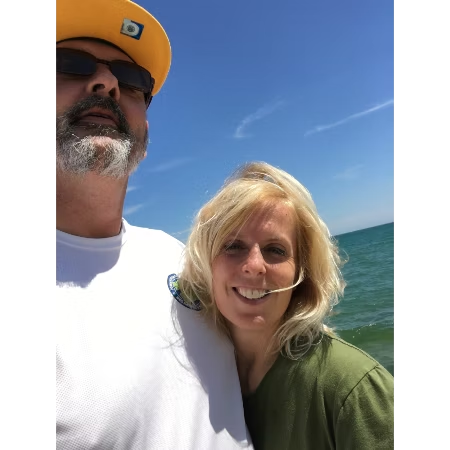
Meet Pastor Todd Berner
Pastor Todd Berner serves as the Senior Pastor of Asbury Wesleyan Church, bringing a shepherd’s heart, a servant leader’s discipline, and a deep passion for helping people know Jesus and walk faithfully with Him.
Todd came to faith in Christ as an adult on May 18, 2003, and his life since then has been shaped by the redeeming grace of God. Having walked through both restoration and loss, including the tragic death of his son Raymon in 2020, Todd leads with authenticity, compassion, and conviction. He believes the church must be a place where truth is preached clearly, grace is extended freely, and lives are genuinely transformed by the power of the gospel.
At Asbury Wesleyan Church, Todd’s heart aligns closely with the church’s Ministry Action Plan—loving God wholeheartedly, loving our neighbors sacrificially, making disciples intentionally, and engaging our community with mercy and hope. He is especially passionate about evangelism, discipleship, recovery ministry, and reaching those who are hurting, overlooked, or disconnected from the church. Todd believes the local church is not a building, but a sent people—called to live out the mission of Christ every day.
Todd holds a Master of Divinity from Liberty University, along with degrees in Business Management and Computer Science. Alongside his calling to ministry, he has spent 36 years as an Automation Controls Engineer, working in industrial automation, systems engineering, and technology-driven environments. This background has shaped his practical leadership style, strategic thinking, and commitment to excellence, stewardship, and integrity.
Before entering full-time ministry, Todd served four years on active duty in the United States Coast Guard, including two and a half years aboard the USCGC Bear out of Portsmouth, Virginia, where he served as a ship’s navigator (Quartermaster). He continues to serve today as a member of the U.S. Coast Guard Auxiliary, maintaining a strong connection to service, seamanship, and public safety.
Todd and his wife Christy share a deep love for one another and for their large, blended family, which includes seven adult children and four grandchildren. Family is central to their lives, and Todd often says that his greatest earthly blessings are Christy, their children, and their grandchildren. Outside of ministry, Todd loves the ocean, boating, and being on the water, as well as spending time outdoors and enjoying God’s creation. Their home is also made livelier by their beloved dogs—Stormy, Thunder Ray, Rosie, and Missy.
Pastor Todd leads Asbury Wesleyan Church with a simple but unwavering desire: to faithfully preach the Word of God, to shepherd people with love and truth, and to see lives changed by Jesus Christ. He and Christy are grateful to be part of what God is doing at Asbury and look forward to walking alongside the church family as together they follow Jesus, make disciples, and serve the community for the glory of God.
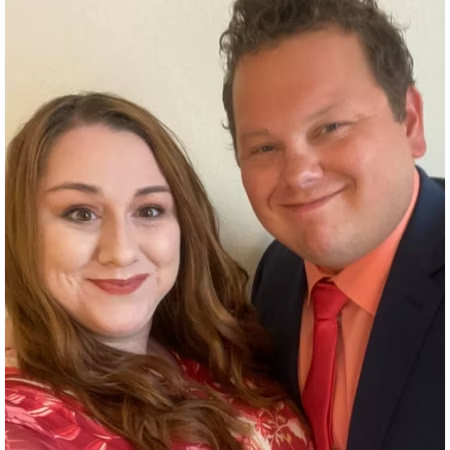
Pastor Wesley Adkins is a devoted husband with a heart for serving others and his community.
His journey of faith began at a local Wesleyan church, where he encountered Christ and
experienced a life-changing transformation. Shortly after, he felt God’s call to ministry and
eagerly stepped into serving the church.
Over the years, Wesley has been involved in ministry through administrative leadership,
preaching, teaching, and leading worship. His passion is to see lives transformed—leading the
lost to Christ and helping believers grow through discipleship.
He is honored to serve at Asbury Wesleyan Church in Newport News, where he witnesses God
moving powerfully. His ministry is guided by the words of Matthew 20:26-28:
"Whoever wants to become great among you must be your servant, and whoever wants to be
first must be your slave—just as the Son of Man did not come to be served, but to serve, and to
give his life as a ransom for many."
Rev. Dawn Shover
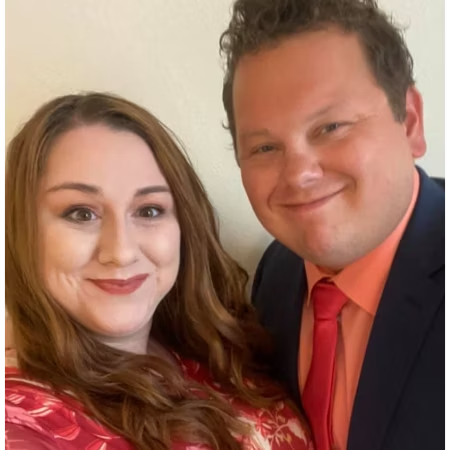
Bethany has served in various roles within the local church, including leading children’s church,
worship, event coordination, and women’s Bible studies. She and her husband share a calling to
serve both Asbury Wesleyan Church and the surrounding community, believing God is moving
powerfully to bring transformation through Christ.
She firmly believes the Lord has great plans for Asbury and the surrounding community, boldly
claiming the promises of 2 Chronicles 7:14-15 over the church:
"If my people, who are called by my name, will humble themselves and pray and seek my face
and turn from their wicked ways, then I will hear from heaven, and I will forgive their sin and will
heal their land. Now my eyes will be open and my ears attentive to the prayers offered in this
place."

Meet Christy Berner
Christy Berner serves alongside her husband, Pastor Todd Berner, as a ministry partner at Asbury Wesleyan Church, walking faithfully in the calling God has placed on their family. Her heart for people, especially those who are hurting or feel unseen, is a quiet but powerful testimony of Christ’s love at work.
Christy’s journey, like Todd’s, has been shaped by both redemption and loss. Together, they have walked through seasons of joy, restoration, and deep grief—including the loss of their son Raymon in 2020. Out of that brokenness, Christy’s compassion has only deepened. She understands firsthand that healing is often a process, and she carries a gentle, steady presence that reflects the grace of Jesus to those navigating pain, loss, addiction, or spiritual renewal.
At Asbury Wesleyan Church, Christy’s ministry flows naturally through hospitality, encouragement, prayer, and relational discipleship. She has a deep passion for creating safe, welcoming spaces where people feel loved, heard, and valued. Whether walking alongside women, supporting recovery ministry, serving behind the scenes, or offering a listening ear, Christy embodies the kind of authentic, Christ-centered love that builds trust and community.
Christy shares a strong commitment to the mission and values of Asbury—loving God wholeheartedly, loving neighbors sacrificially, and helping people grow as disciples of Jesus Christ. She believes that ministry happens not only from a platform, but across kitchen tables, in quiet conversations, and through consistent acts of mercy and faithfulness.
Family is central to Christy’s life. She and Todd are part of a large, blended family with seven adult children and four grandchildren, and she treasures time spent with each of them. She deeply values her role as a wife, mother, and grandmother, and she brings that same nurturing care into the life of the church. Together, Todd and Christy enjoy being outdoors, especially near the ocean and on the water, where they find rest and renewal in God’s creation. Their home is also shared with their beloved dogs—Stormy, Thunder Ray, Rosie, and Missy—who add plenty of joy and energy to daily life.
Christy is grateful for the opportunity to serve alongside Todd at Asbury Wesleyan Church and considers it a privilege to walk with others as they encounter Jesus, experience healing, and grow in faith. Her prayer is simple yet profound: that people would know they are deeply loved by God and never have to walk alone.